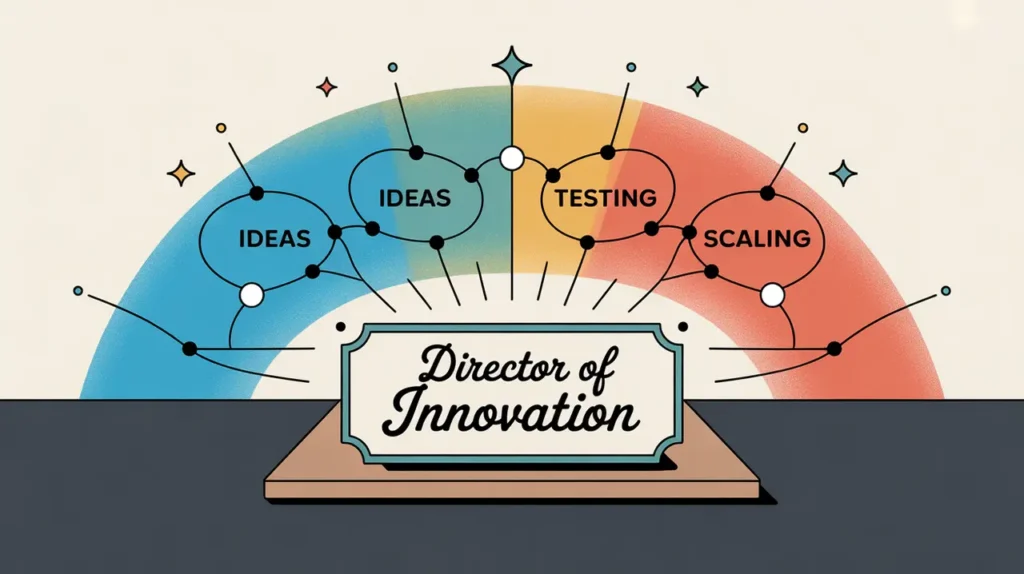What Does the Chief Solution Officer Role Involve?
A chief solution officer (CSO) is responsible for driving the design, development, and delivery of innovative solutions that advance an organization’s mission and strategic goals. This involves identifying opportunities for new products, services, or systems, leading solution architecture and integration, and ensuring that solutions are viable, scalable, and aligned with organizational priorities. The CSO works closely with the CEO, executive team, program leads, and technical specialists to bridge strategy, innovation, and execution. In both nonprofits and social enterprises, this role plays a critical part in ensuring that solutions are not only visionary but also practical, sustainable, and impactful across the ecosystems in which the organization operates.
At What Level does this Role Operate?
Executive Level: This role operates at the highest level of organizational leadership, typically reporting to the CEO and serving as part of the executive team. The CSO leads solution development across functions and collaborates with program, operations, technology, and external partners to ensure cohesive delivery.
Relative Employability: Executive solution leadership roles are growing in nonprofits, social enterprises, and mission-driven organizations that are embracing technology, innovation, and systems approaches to address complex challenges. Leaders who can connect strategic vision to practical solution-building are increasingly valued.
Relative Pay Scale: Within nonprofits and social enterprises, chief solution officer roles sit in the upper executive pay bands, reflecting their strategic importance in innovation, execution, and cross-functional leadership.
What are the Key Responsibilities and Activities?
- Define and lead the organization’s solution development strategy, aligned with mission and priorities
- Identify opportunities to design or adapt products, services, or systems that address critical needs
- Lead solution architecture and ensure integration across programs, operations, and technology platforms
- Supervise cross-functional teams to prototype, test, and scale solutions
- Collaborate with executive leadership to align solution development with strategy and operational capacity
- Build partnerships with external actors, including funders, tech partners, and communities, to strengthen solution viability
- Establish frameworks to evaluate solution performance, scalability, and impact
- Position the organization as a thought leader and practitioner in solution innovation within its sector
What Core Competencies and Qualifications are Needed?
Required Qualifications and Experience
The following reflect common qualifications and experience expected for this role, while recognizing that pathways may vary by context, organization, and region.
- Relevant academic background in business, design, engineering, technology, or a related field, or equivalent professional experience
- Extensive leadership experience in solution design, innovation, or program development, ideally at a senior or executive level
- Deep understanding of solution architecture, systems thinking, and cross-functional delivery
- Proven ability to lead teams in the development and scaling of impactful solutions
- Experience collaborating with diverse stakeholders including funders, communities, and technical experts
Key Competencies
- Strategic and creative solution design expertise
- Systems thinking and cross-functional integration skills
- Strong innovation, prototyping, and scaling abilities
- Excellent communication and stakeholder engagement skills
- Analytical skills to assess solution viability and impact
- Leadership and team-building capacity in dynamic environments
How are AI and Automation Shaping this Role?
An AI-native chief solution officer will look to AI and automation to accelerate solution design, enhance systems integration, and improve scalability. They can use AI tools to identify patterns in user or operational data, generate new solution concepts, and model performance under different scenarios. Automation can streamline prototyping, testing, and implementation workflows, allowing the CSO to focus on strategic alignment, creativity, and impact. By integrating AI thoughtfully, CSOs can strengthen their organization’s ability to deliver adaptive, efficient, and high-impact solutions.
What Career Pathways and Transferable Skills are Associated with this Role?
Chief solution officer roles are senior leadership positions that sit at the intersection of strategy, innovation, and execution. Professionals in this role may advance to CEO, chief innovation officer, or advisory positions, leveraging their strategic foresight, design leadership, and delivery expertise. The combination of creative problem solving, systems thinking, and operational leadership developed in this role is transferable across nonprofits, social enterprises, corporations, philanthropic institutions, and public sector organizations.







